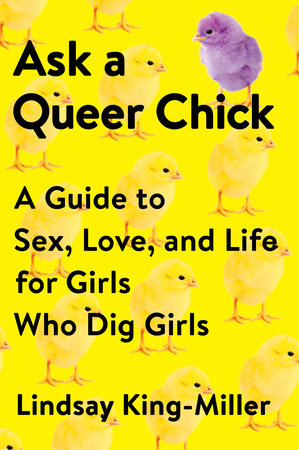Have you been on the internet at all in the past two weeks? Yes? I’m guessing the cover of this book probably looks familiar to you. If not, try it in red:
That’s right: we’re talking about gay marriage! Marriage equality! A hot topic for around the world right now. While we won’t hear the US Supreme Court’s verdict until June, that certainly isn’t going to stop the internet from deliberating.
Speaking of which, have you seen this one?
Or maybe this one?
They’re symbols being posted, generally, by queer people who don’t support gay marriage or the HRC. When I first saw these symbols making the rounds, I admit – I was baffled. So I did what I always do. I bought some books.
Virtual Equality: The Mainstreaming of Gay & Lesbian Liberation by Urvashi Vaid begins with a history lesson on gay political activism in the United States. Vaid writes,
“Throughout the history of our resistance to prejudice, gay people have clashed over a fundamental question about the overall goal of our movement. Are we a movement aimed at mainstreaming gay and lesbian people (legitimation), or do we seek radical social change out of the process of our integration (liberation)? Gay and lesbian history could be read as the saga of conflict between these two compatible but divergent. Legitimation and liberation are interconnected and often congruent; the former makes it possible to imagine the latter. But our pursuit of them takes different roads and leads to very different outcomes.”
Today, proponents of legitimation argue to the straight world that gay people are just like straight people, with the one small difference of who we are attracted to. They lead the fight for gay marriage, arguing to straight people that we are merely a minority, and that prejudice against us is irrational and unconstitutional.
Proponents of liberation, on the other hand, often believe that marriage is part of an oppressive sexual and political order. They argue that vast set of protections available to married people should also be available to single mothers, unmarried couples, single people, etc. Many feel that gay marriage should not be the top priority for the LGBT movement and would prefer to push for broader social change, in which “racism, homophobia, sexism, economic injustice, and other systems of domination are frankly addressed and replaced with new models.”
Of the two camps, Vaid is more of a liberationist, but certainly not an unquestioning one. Throughout the book, she deliberately lays out the limitations of both approaches. (Legitimation: elitist, preoccupied with single-issue politics, tends to leave many groups behind, does not make society more just. Liberation: idealistic and impractical, slow moving, not easy to relate to, tends to be disorganized.) She sternly calls out those making personal attacks, and the movement’s tendency to tear down our political leaders. At the book’s conclusion, Vaid calls for a new understanding among gay people, and for more debate among all political sides in the LGBT movement.
Although Virtual Equality was published in 1995, Vaid’s analysis is relevant, and indeed, anticipated many of the issues that the movement now faces two decades later. Her clear-eyed analysis of the supremacist right as a totalitarian regime is one I believe has only increased in relevance over time. So, too, her exploration of the economy of queerness, with the queer as consumer, and its corollary, the selling of gayness.
One other prescient point that I thought Vaid articulated particularly well is why the “born this way” argument is misleading and ultimately not politically advantageous for LGBT people. She writes,
“Homosexuality always involves choice – indeed, it involves a series of four major choices: admitting, acting, telling, and living. Even if scientists prove that sexual orientation is biologically or genetically determined, every person who feels homosexual desire encounters these four choices.”
Further,
“Because we choose to engage in gay behavior, says the right, we are not entitled to legal protection. Gay activists most frequently respond to this argument with an assertion that homosexuality is innate. … But in doing so, we radically limit the original reach of our political movement. Where we once sought to free the homosexual potential in everyone, by making it safer to be gay, lesbian, or bisexual, we now assert the conservative view that all we want is the freedom to be our biologically determined selves. History shows that the shelter of biology has never protected a people from persecution. The right does not care that we were born gay; they object to us because we are not straight.”
I like to imagine how differently her anthem might have turned out if Lady Gaga had read this book before penning her pop hit. Or how much further we might be if this book was required reading for every LGBT person about to enter a leadership role. Or what would happen if every Facebook activist changing their profile picture were to read this book. (Do our allies really understand the full historical weight of the symbols they’re using? Do we? I know I didn’t.)
I have a lot of respect for the work Vaid did as the director of NGLTF, and her decades of queer activism. If you’re even remotely interested in LGBT history, involved in social activism of any kind, or just want to put political discussion about LGBT issues into context – I can think of no better source than Urvashi Vaid and Virtual Equality. I highly recommend this book to you.
Bonus: for further reading, Vaid just put out a new book called Irresistible Revolution: Confronting Race, Class and the Assumptions of LGBT Politics. I’m excited to pick it up.



Madelaine says
Thank you for such a clear piece about a topic that is rarely addressed. I agree with Vaid’s argument and I never seen it so well expressed – will be seeking out that book!
Karelia Stetz-Waters says
I should check this book out. I recently joined a book group in which most of the women are 60+. (I’m in my late 30s). We got to talking about gay marriage and I was surprised that most of them were ambivalent. They recognized the need, now that they were thinking about social security, but they didn’t love the idea. They all remembered a time when even monogamous relationships were suspect in the lesbian/feminist community.
I rarely think of myself, a dedicated Gen. X-er, as being the cheerful conformist, but I all I could say was, “I can’t wait to pick out my dress.”
It was really interesting to hear from an older generation of activists, and I would be interested to learn if there are people in my generation, or even millennial, who resists gay marriage.
Laura Mandanas says
Thanks Madelaine!
Karelia, I had the same reaction when I first heard those ideas! The book actually doesn’t go into gay marriage so much, but I thought it was really interesting to see the similar type of anti-mainstreaming arguments being raised throughout history. I felt like it gave me much better context to understand where people arguing about today’s issues are coming from.
For something more directly related to gay marriage, I’ve been meaning to check out “Against Equality: Queer Critiques of Gay Marriage.” (http://www.goodreads.com/book/show/8801547-against-equality) Haven’t been able to track it down locally yet, but I’m still hoping!
Karelia Stetz-Waters says
I’ll have to check that out. Thank you.
I’ve been reading When We Were Outlaws by Jeanne Cordova. That got me curious about different incarnations of gay activism. She writes about the 70s.
It is interesting to see how our political consciousness shifts and changes. Perhaps because my work is split down the middle, 50% baby boomers, 50% Gen X, I am really interested in how different generations think about change and activism.
The question that has been on my mind is whether or not my generation believes in the possibility of massive ideological/philosophical change (like getting away from the idea of monogamous partnerships or abandoning the cash based economy) that the previous generation believed in (at least in the 60s and 70s). What do you think?
Karelia
erampant says
I’ve seen that bigger picture structural change type thinking with people involved in the Occupy movement. I’m a little bit younger than you (26), and it seems like everyone in that mindset has gravitated towards that movement. But even here in New York, they’ve lost a lot of steam… I don’t see much of a future there, except maybe for the connections between like-minded people possibly leading to new organizations in the future. I tend to agree with their ideology, but the disorganization/resistance to any sort of hierarchical leadership in Occupy really drives me crazy.
I see plenty of support for structural change espoused on Tumblr and lesbian-oriented websites. But it’s hard to say how much that really carries over to real life, you know?
What do you think?